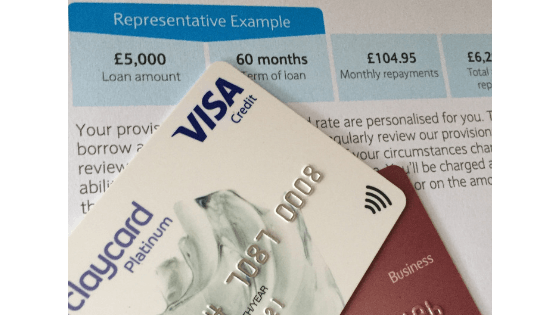At some stage in their existence, many companies in the UK will be in need of additional funds to ease cash flow problems. This article will look at two commonly used ways of raising capital: business loans and credit cards. Although not ideal, they’re often necessary over a short-term period.
Because they work in different ways, here is a look at some pros and cons of business loans vs credit cards.

Image credit: Images Money on Flickr
Business Loans
Pros
- Faster Payments. Applying for a business loan is quick and easy online; successful applications can see funds deposited in your account within 24 hours. Some modern loan companies make money available in under 30 minutes.
- Larger Amounts. Depending on your business model, loans can stretch up to £1 million and above. There’s plenty of small business loans available too, ideal for a short-term cash injection to help you through a sticky period.
- Increased Flexibility. Many business loan providers offer flexible repayment structures. You can negotiate a bespoke payment in relation to your personal circumstances and may even be able to take out a new loan to cover the old one.
Cons
- Security Required. Loan companies are usually unwilling to offer funds unless they have some type of collateral as a security measure. This could be the business itself or personal assets such as your home. Missing repayments can cost you dearly.
- High Interest Rates. Should you have a low credit score or a mixed business history, the loan could be subject to high interest rates. These high repayments can damage your cash flow moving forward.
- Fees. Unfortunately, repaying a loan before the term has ended may incur an additional fee. The earlier you pay off the debt, the more it will cost. There may even be a fee when taking out an additional debt consolidation loan.

Credit Cards
Pros
- Free Borrowing. Shop around and you’ll come across credit cards that offer 0% interest borrowing for a set period of time. As long as you keep up with monthly repayments, this is great way of relieving cash flow problems.
- Consumer Protection. Credit cards are protected by law (on purchases between £100 and £30,000) so that the card provider is jointly liable with the retailer if something goes wrong, i.e. if an item you’ve already paid for is not delivered.
- Cashback Rewards. Due to a competitive market, many credit card companies offer a small percentage of cashback. Every time you spend on them, you’re effectively being rewarded for regular use of the card.
Cons
- Low Credit Limits. Credit cards don’t offer anywhere near the level of cash you’d access with a business loan. If you’re in need of a substantial investment, a credit card may not be the solution.
- Threat of Crime. If your credit card is stolen and fraudulently used, you still may be liable to pay. Business owners can often misplace their PIN or forget to cancel a lost card immediately – don’t fall into this trap.
- Large Interest Charges. Despite periods of free borrowing, any breach of repayment policy and you can be hit with hefty charges or excessive interest rates. Likewise, you may also be charged for ATM withdrawals, online balance transfers or using the card abroad.
Which option is right for you depends on your individual business needs, from how you intend to use the funds to the current financial strength of your company. Professional accounting advice can be crucial when looking to secure capital for your business, so why not get in touch with the friendly team here at Neil Smith Accountancy.
If you’re interested in keeping your costs down, reducing the amount of corporation tax you are liable for is a great start.

